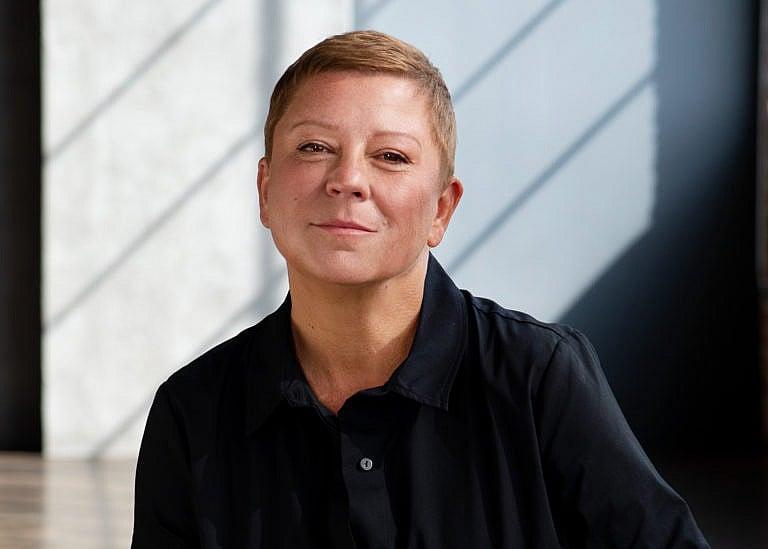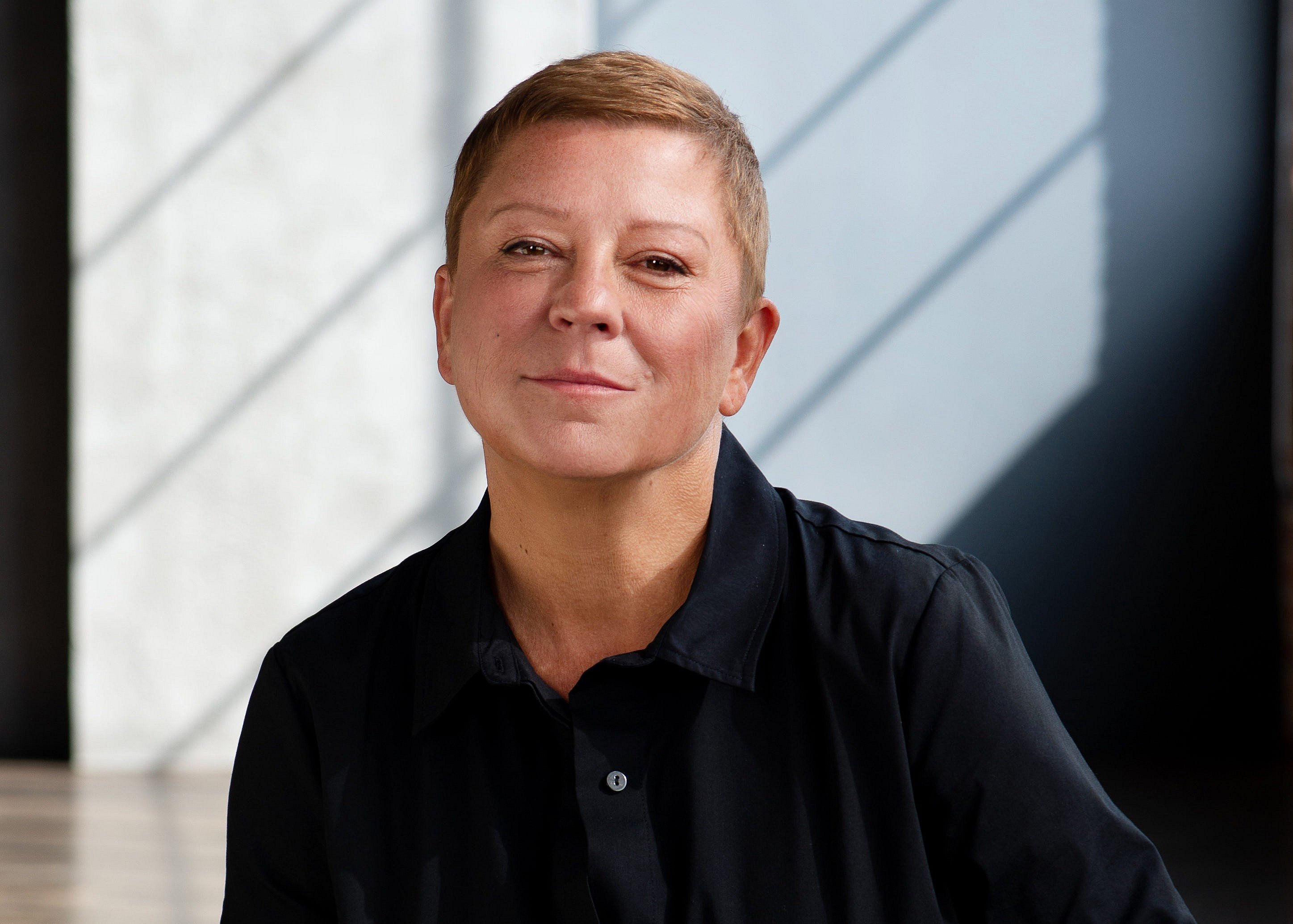This realtor created a Tinder for property co-ownership
“You shouldn’t meet someone online once and jump into a purchase, any more than you would go on one Tinder date and agree to get married”

Share

Since becoming a real estate agent in 2015, Lesli Gaynor has specialized in co-ownership. She sees it as a model of housing that addresses the problems of affordability, lack of density and social isolation. Co-purchasers are often family members or friends, but that doesn’t have to be the case. She and her business partner, Parimal Gosai, started talking about how they could help and, in 2021, they launched Husmates: a real estate platform that works like a dating app by matching buyers looking to purchase property together. Sharing a mortgage with a stranger may sound like a risky proposition, but Gaynor says it’s all about doing the right work in advance. Here, she talks about why it’s a good idea to keep kitchens and bathrooms separate and what happens if your co-owner lands their dream job in Timbuktu.
RELATED: My mortgage is about to go up by at least $1,000 a month
Husmates sounds like Tinder for real estate. Where did the idea come from?
Co-ownership is the reason I got into real estate. I purchased a property with two friends back in the ’90s and I saw a lot of potential in the model, both as a way for people to break into the market and as a force for positive social change. That’s been my focus since I became a real estate agent in 2015. I’ve been helping prospective owners co-purchase properties since then. In 2019, I met my business partner, Parimal. He was the listing agent on a deal I was doing and we got to talking and realized we were both passionate about co-ownership. During the pandemic, we kept getting calls from potential clients who wanted to co-purchase and had their finances in order, but didn’t have someone to buy with. Parimal and I started talking about how we could help these clients, and that’s when this idea of a real estate dating app came up. Tinder for real estate is our elevator pitch, but you shouldn’t meet someone online and jump into a purchase any more than you would go on one Tinder date and agree to get married.
How exactly do people match on Husmates? And what happens then?
You create a profile and fill in details about everything from your finances to your location preferences to your social life and diet. (If you’re vegan, you probably don’t want to be with someone who barbecues every weekend.) Currently we have about 450 users on the app, which is focused on properties in Toronto and the GTHA. A match is when you “like” someone’s profile for any reason: maybe you’re both based in the area where you’re looking to purchase, or maybe you might both love dogs. It’s not always two people: we sometimes have groups of three or more who connect on the app. If parties are interested in meeting, they can do that with our help or arrange it on their own. After that initial match, the hard work starts to make sure everyone is on the same page and, if it gets to that point, to create the terms of an agreement: What happens if I want to exit? How will we value the property? Who will we use for mediation if we hit a snag? These are the conversations that anyone buying real estate together should be having—whether it’s with a spouse, a friend, a family member—but they often don’t. We have a lawyer to help draft those agreements.
READ: The Move: From Toronto’s rental grind to a quaint corner store in Quebec
Do you discuss common pressure points like playing loud music, parties, pets, smoking weed indoors?
That’s what we refer to as the culture of the house, and those questions definitely come up. At the same time, these issues aren’t unique to co-ownership. If you live in a condo or rent in a multi-unit property, you’re going to have to follow some rules. Co-ownership also doesn’t necessarily mean cohabitation. For the most part, we advocate for hybrid spaces where you have separate living spaces with maybe a shared backyard or living room. We had two families co-purchase a detached three-storey home with two separate units in the west end of Toronto, and they left a finished basement as a shared social space. I matched two women in a single home outside the city, and now they’re renovating to create two separate units. I recently started working with a group of four women in their 60s who met on Husmates. They all own their own homes, but they’re starting to have conversations about aging in place and how they might be able to do that together in one property.
So you don’t get a lot of people wanting to co-own a single home?
We’ve had some people looking into that, but our advice is “Don’t do it.” Shared spaces are hard. Sharing kitchens and bathrooms are especially hard, even with people you love. You end up having conflicts because one person thinks the kitchen should be spotless and the other piles dishes in the sink.
MORE: The Move: Why two pilots willing to put down roots anywhere in Canada landed in Calgary
Ontario’s Bill 23, a provincial act that loosens existing rules to allow for more residential development, will make it easier to get approval for laneway homes, auxiliary apartments and multi-unit properties. What will that do for co-ownership?
We worked with a client who bought a larger lot with a single home so he could build a laneway home and live in it, while the original owners lived in the main house. We’re seeing more interest in that kind of set-up. I have other issues with Bill 23 because it favours developers—if it costs $350 a square foot to develop a laneway home, that’s not going to be affordable for most people. We need to get creative about how these things can be financed. One idea is that we have separate mortgages on the same property or we mortgage pre-construction.
What about people who are interested in co-purchasing an investment property?
We aren’t in the business of turning clients away, but investment properties aren’t our focus. Co-ownership is a way for people to buy property in an increasingly unaffordable housing market, but it’s also a socially progressive approach to real estate. Before I became a real estate agent, I was a social worker focused on health policy. I know how important it is to have secure housing. I’m not saying co-ownership is going to solve our housing crisis—you have to have money to co-own. But I do think it’s a way to address a number of social concerns: isolation has been a big issue since the pandemic, and we can build neighbourhoods the way they were meant to be built, so both elderly and young people are part of a community. White picket fences were ideal at one point, but they have a way of keeping people apart.
It seems no one can afford to buy property anymore, at least in Toronto. Is there a specific demographic you’re dealing with?
With the Husmates app, it’s mostly millennials—people in their 30s who are starting to realize that this may be their only way into the market. So maybe there will be two or three people buying property together or just two co-owners along with a silent investor, a.k.a Mom or Dad. I’ve had scenarios with three buyers who are going to live in the property, and then you have a fourth silent investor—someone’s parents—putting down a big chunk of the down payment. In that case, we set up an equalization agreement, so that the silent party is eventually paid out. It’s not complicated, but if you don’t have those terms in place, it can be a nightmare.
What are some other common pitfalls you can avoid via the right paperwork?
We’ve had cases where two people co-purchase a home and then one of them gets into a relationship and their partner moves in. If you live in separate units, that’s not a problem, except when you’re dealing with a matrimonial property situation where the new partner can claim ownership. Maybe both buyers are single when I meet them, but thinking about the future is my job. What if one person gets their dream job in Timbuktu that starts tomorrow? When both parties sign a document stipulating what happens in different circumstances before buying property together, it’s less hassle for everyone involved.
What happens if your co-owner moves to Timbuktu?
You would decide in advance who pays the penalties if the mortgage is broken. Sharing a mortgage is probably the biggest pressure point in co-ownership: you’re going into debt with another person, and both of you are equally responsible. You may have paid your share, but if the full mortgage payment isn’t in on the due date, the bank doesn’t care who owes it. I always advise people to have employment insurance and also a slush fund that covers three months of payments. We call it the anti-tsunami clause.
Have you ever met with prospective co-owners and told them they were not a good match?
Definitely. It’s happened a few times. It’s what you would think: one person is saying how much they appreciate the quiet, and the other person wants to make sure there’s enough room to host parties.
So there’s no “opposites attract” in co-ownership?
I think there can be, but that’s when you really want to make sure people have their own space.
This article contains affiliate links, so we may earn a small commission when you make a purchase through links on our site at no additional cost to you.